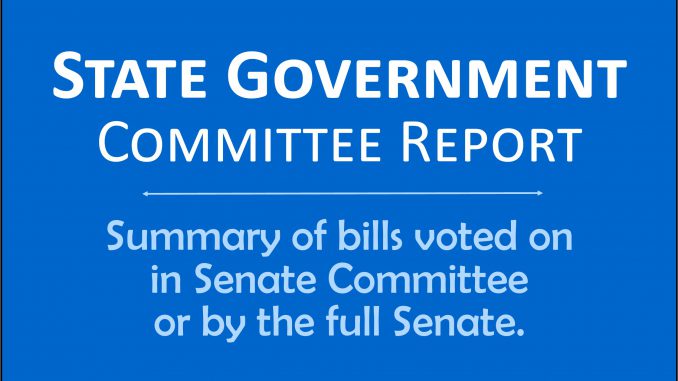
SSB 1033 – CPA firm reciprocity
SSB 1051 – Legalizing consumer fireworks
COMMITTEE ACTION
SSB 1033 modifies Iowa’s account statue on Certified Public Accountant (CPA) firm practicing privileges without obtaining the state’s certificate. The changes mirror individual CPA reciprocity/practicing privilege changes made in 2006. Currently, all states have individual CPA reciprocity exceptions, and 16 states have moved to include firm reciprocity across state lines without requiring state certification. Firms will still have to comply with all accounting board and state requirements. The Consumer Protection Division of the Iowa Attorney General’s office reviewed this bill at the request of Senate Democrats and confirmed that Iowa consumers would continue to have a high level of consumer protection under these changes.
[2/8: short form (Feenstra excused)]
SSB 1051 allows the commercial sale of fireworks. Current law says that a person who sells or uses fireworks is committing a simple misdemeanor. However, a county board of supervisors or the Department of Natural Resources (DNR) may grant a permit for the display of fireworks if the display is handled by a competent operator.
SSB 1051 makes these changes:
- License and fees: The state fire marshal must establish a consumer fireworks seller license; and retailers and community groups must maintain commercial general liability insurance. The bill establishes two classes of consumer fireworks and five fee levels:
- $1,000 annual licensing fee for a retailer at a permanent building who devotes 50 percent or more of their floor space to sell or display first-class consumer fireworks.
- $500 annual licensing fee for a retailer at a temporary structure who devotes 50 percent or more their floor space to sell or display first-class consumer fireworks.
- Retailers who devote less than 50 percent of their floor space to sell or display first-class consumer fireworks must pay an annual licensing fee of $400.
- A community group that sells first-class consumer fireworks must pay an annual licensing fee of $400.
- $100 annual licensing fee for retailers or community groups that sell only second-class consumer fireworks.
- Annual registration fee: There is an annual $1,000 wholesaler registration fee, which will be deposited in a consumer fireworks fee fund to be used for the state fire marshal’s consumer fireworks duties, and to provide grants to local fire protection and emergency medical service providers.
- Timeline for selling: The state fire marshal must adopt rules to permit licensed retailers and community groups to sell fireworks at permanent buildings between May 20 and July 6, between December 10 and January 3, and at temporary structures from June 13 to July 6.
- Time for setting off: People may set off fireworks between 9 a.m. and 10 p.m. from June 24 to July 6 and from December 24 to January 3. A person can only set off fireworks on their own land or with permission of the landowner. A violation is considered a simple misdemeanor, but a court cannot order imprisonment.
- Underage buying/selling: Selling a consumer firework to a person who under 18 is a simple misdemeanor. A person under 18 who purchases consumer fireworks commits a simple misdemeanor. A simple misdemeanor is generally punishable by confinement for no more than 30 days, a fine of at least $65 but not more than $625 or by both, but this bill provides for a fine of at least $250.
- Restrictions/opt out: The state fire marshal may order the suspension of the use of consumer fireworks, display fireworks or novelties if their use would be a threat to public safety. Penalty: a simple misdemeanor with at least a $250 fine. A county board of supervisors or city council may adopt an ordinance or resolution to prohibit or limit the use (but not the sale) of consumer fireworks or display fireworks if they would be a threat to public safety or a nuisance. Penalty: simple misdemeanor and $250.
- Key differences between SSB 1051 and legislation from last session:
- Fee schedule on Page 2, lines 24-35 and Page 3, lines 1-2: different references (retailer at permanent building vs. temporary structure) and fee amounts
- Page 3, lines 21-25: insurance coverage requirements and amounts are different
- Sections 6 and 7 on page 7: Opt-out language instead of opt-in language for county board of supervisors and city councils
- Page 10, lines 1-16: rephrasing of selling/use dates and timeframes
- Page 11, Division III: separate effective date division instead of having two effective date sections
- A committee amendment clarifies that people can use sparklers in parks without a permit from DNR. Right now, there are different sell and display dates. The committee amendment will move display dates to conform to the sell date.
[2/8: 11-3 (Bisignano, Jochum, Petersen “no”; Feenstra excused)]
